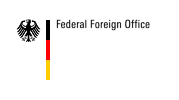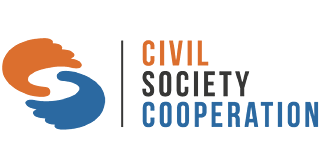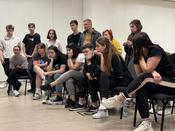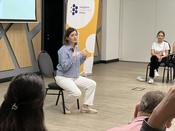Department of Political and Social Sciences
Service Navigation
War Reporting from Ukraine
Ukrainian journalists on the frontlines. Enhancing ethical and factual reporting in war and conflict.
"The first casualty of war is truth." Even though journalists are supposed to report objectively and truthfully, this common saying still holds true. In war and conflict zones, journalists face several restrictions that impacts their reporting. Restrictions of movement and safety concerns have always played a major role. Yet, nowadays, the extent of disinformation and fake news has grown tremendously. Propaganda from political and military actors involved in the conflict is spreading.
The frontlines in the Ukraine fighting the Russian invaders are of particular interest for war reporting. Given the fact, that Russian trolling is very active on social media but also traditional information providers such as Russian TV or radio are controlled and inflicted with a specific propaganda narrative, a very biased dissemination of information towards Ukrainians can be detected. It is very difficult to differentiate between factual information and fake news or propaganda. Journalistic work in war and conflict zones therefore requires specific skills and new work routines. In particular, combating disinformation and fake news is crucial.
The training workshops in Ukraine in September 2024 are documented here.
This project is carried out in cooperation between the Center for Media and Information Literacy (CeMIL) and the Academy of the Ukrainian Press (AUP) and aims to provide a series of comprehensive training workshops to raise the professional level of Ukrainian journalists working in war zones and at the frontlines including ethical reporting, safety and medical issues and dealing with information warfare.
Including so-called fixers and stringers is the second dimension of the project: war reporting is not only of domestic importance to uphold comprehensive and factual information in the media. It also has a transnational dimension as war reporting shapes also foreign policy. Accurate and credible war reporting in international media is important to get a meaningful picture of the war and its impacts on society and politics. As foreign reporters often do not have local knowledge, so-called fixers or stringers, i.e. local journalists and producers play a tremendous role: the quality of reporting stands or falls with the skills of Ukrainian journalists to navigate in the (media) war zones. The project draws on the fact that Ukrainian war reporters are not only to be found on the frontline themselves but also work as fixers and stringers for international media outlets or their journalists. In a workshop in Berlin, selected Ukrainian journalists will meet with German journalists and media houses to discuss fixer-correspondent relations and clarify the mutual expectations in order to improve an ethical and sound coverage of war-related issues in Ukraine.
The project is carried out collaboratively by the Academy of the Ukrainian Press (AUP) and the Center for Media and Information Literacy (CeMIL) at Freie Universität Berlin and it is funded by the German Federal Foreign Ministry in the framework of its Eastern Partnership scheme.
The Academy of Ukrainian Press (AUP) was founded in 2001 and sees its mission as establishing European and world standards of journalism in Ukrainian media. AUP is the leading NGO in Ukraine in the field of media literacy in all spheres of Ukrainian society. AUP has also established itself as a leader in this field in post-Soviet countries.
The Center for Media and Digital Literacy (CeMIL) at Freie Universität Berlin is part of the Institute for Media and Communication Studies. It comprises state-of-the-art expertise on media literacy and has long-term experience in training and research with journalists and communication scholars from East European countries.
A previous project in 2023 has focused on Media Literacy in Ukraine. More information can be found here.
This project is supported by




